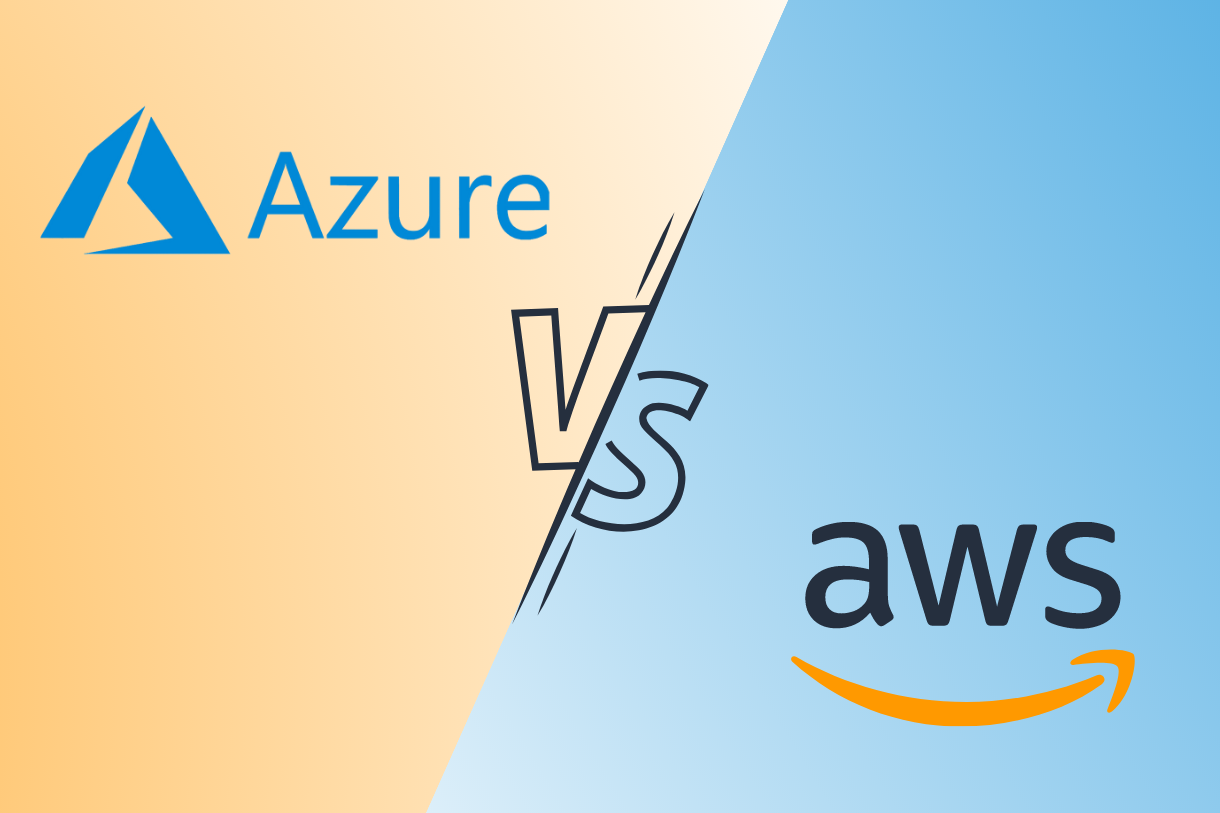Microsoft Azure and Amazon Web Services (AWS) are two of the leading cloud computing platforms, offering a wide range of services and solutions. Whilst there are similarities between the two, there are also some key differences. Understanding which platform is better for your business when looking for a cloud solution can be difficult. This blog highlights the main differences between Microsoft Azure and AWS to help make your decision easier.
Company Backgrounds
Microsoft Azure:
Azure is developed and operated by Microsoft, a multinational technology corporation. Microsoft’s commitment to innovation and industry-leading practices ensures that Azure remains at the forefront of cloud computing.
Amazon Web Services:
AWS is developed and operated by Amazon, an e-commerce and cloud computing company. AWS aims to empower businesses and developers with the ability to access computing power, storage, and other critical resources over the internet, without the need for on-premise infrastructure.
Service Offerings
Both AWS and Azure offer similar services, covering a wide range of features, including storage, databases, analytics, networking, and machine learning. Azure offers additional services to AWS, such as virtual machines and AI (Artificial Intelligence).
Hybrid Cloud Approach
Microsoft has a strong focus on hybrid cloud solutions, allowing seamless integration between on-premise infrastructure and Azure cloud services. While AWS offers hybrid cloud capabilities, Azure has been considered more robust and better integrated with existing Microsoft technologies.
Platform Integrations
Microsoft Azure:
Azure provides deep integration with Microsoft’s network, such as Windows Server, Active Directory, SQL Server, and other Microsoft software products.
Amazon Web Services:
AWS offers a broad range of integration options with third-party tools and platforms, making it more versatile for multi-vendor environments and a more popular option for enterprise-level companies.
Learn more at AWS – Cloud Computing.
Pricing and Cost Structures
Amazon Web Services:
AWS has been known for its extensive pricing options, offering flexibility but making it a more complex structure.
Microsoft Azure:
Azure has simplified its pricing structure and offers cost-effective options, especially for businesses already using Microsoft products.
Microsoft Azure vs Amazon Web Services
In conclusion, Azure and AWS continuously evolve and expand their services. Ultimately, the decision between Azure and AWS will depend on your individual business requirements, existing technology, and finances. Due to AWS’s broader integration options, it may be more beneficial and effective for larger enterprises that require a multi-vendor platform. Whereas Microsoft Azure could fit better for smaller SMEs due to their simpler approach to Cloud strategies.
Impact IT Solutions have the necessary skills and experience to help transform your business through automation & cloud services such as Microsoft Azure, Teams, SharePoint and even developing bespoke software applications to fill any gaps.
We build, configure, test and migrate your servers into the Microsoft Azure environment. Learn more about our Microsoft Azure services. Alternatively, contact us on 0117 2020 200 or [email protected] to discuss with one of our experts today.













